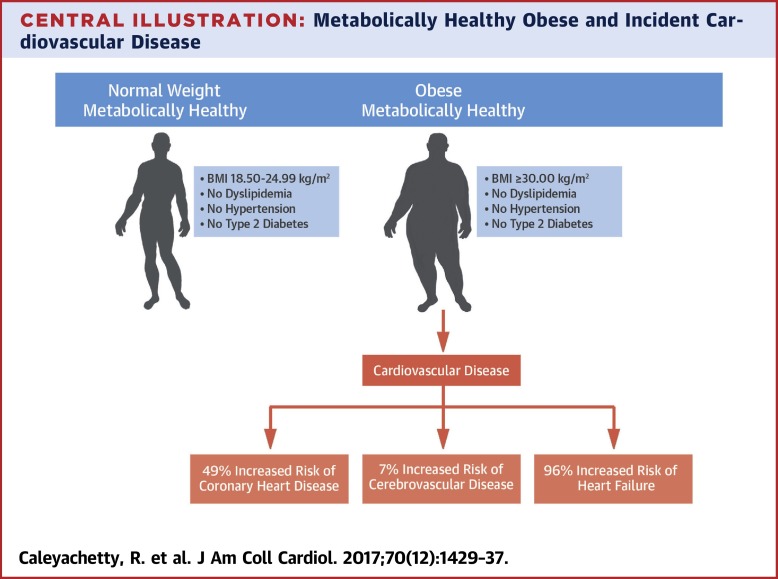News Analysis |
‘Metabolically Healthy Obesity’ refers to the absence of metabolic diseases such as diabetes in people who suffer from obesity. This has led to the spread of the idea that people who are overweight or obese, but generally healthy, are not at risk of metabolic diseases. However, a new study, particularly on women, suggests that the “healthy” attribute should be taken with a considerably large pinch of salt.
This begs the question; can any type of obesity ever be characterized as ‘healthy?’ A new study suggests that the answer might be ‘no.’ Obesity tends to bring with it numerous health risks, including type 2 diabetes, hypertension and several types of cancers.
According to the National Institute of Diabetes and Digestive and Kidney Diseases, in 2013–2014, up to 40.4 percent of adult women in the United States had been diagnosed with obesity. With this in mind, some women have what is often known as “metabolically healthy obesity,” as, despite their high body mass index (BMI), they do not have many of the additional health conditions that obesity is associated with and a risk factor for.
The participants were then split into different health categories based on their BMIs, their baseline metabolic health status and their change in metabolic health status. Then, they were followed up for a period of 30 years (1980–2010).
Research published recently in The Lancet Diabetes & Endocrinology opts for a definition that characterizes it as obesity in the “simultaneous absence of hypertension, dyslipidemia, and diabetes.” However, there is currently no clear definition of ‘metobolically healthy obesity’ as different studies investigating the specifics of this condition may each describe it differently.
The authors of this study were interested in addressing a question that is a frequent point of debate when considering metabolically healthy obesity: “Does it affect the risk of cardiovascular disease (CVD), and if so, to what extent?”
Read more: Moderate coffee consumption contributes to improved health
Lead researcher Prof. Matthias Schulze — from the German Institute of Human Nutrition Potsdam-Rehbruecke in Nuthetal — and colleagues, hypothesized that while at first glance, obesity free of metabolic diseases may not heighten a person’s risk of CVD, in the long-term, it may lead to the same negative effects on cardiovascular health as other types of obesity.
Is Metabolically Healthy Obesity ‘Healthy?’
At first, the research team identified previous studies that had looked at the effects of metabolically healthy obesity on health, focusing on those that followed up with the participants over a long period of time (over 12 years). A systematic review of these studies revealed that obesity — whether accompanied by metabolic diseases or not — does heighten the risk for cardiovascular conditions.
To confirm these preliminary observations, Prof. Schulze and team went ahead and conducted a large cohort study involving 90,257 women — recruited using the ongoing Nurses’ Health Study — who were free of CVD at baseline.
This begs the question; can any type of obesity ever be characterized as ‘healthy?’ A new study suggests that the answer might be ‘no.’ Obesity tends to bring with it numerous health risks, including type 2 diabetes, hypertension and several types of cancers.
The participants were then split into different health categories based on their BMIs, their baseline metabolic health status and their change in metabolic health status. Then, they were followed up for a period of 30 years (1980–2010).
In order to monitor any changes in health, the women were sent questionnaires every couple of years, so they were able to report any relevant medical information. Over an average follow-up period of 24 years, 6,306 women were diagnosed with CVD and the researchers also recorded 3,304 heart attacks as well as the occurrence of 3,080 strokes.
For their analysis, the researchers also adjusted for influencing factors, including the participants’ age, levels of physical activity, smoking and drinking habits, ethnicity, aspirin use, and any family history of heart attack or diabetes. With this in mind, the authors said the study showed an association between cardiovascular diseases and obesity rather than cause and effect, and was mainly in white women, meaning the findings cannot be generalized to other ethnic groups or men.
Read more: 48% of Pakistani Women have no say in their health matters
Moreover, it is very important to keep in mind that women who are at a normal weight but are metabolically unhealthy are around two- and- half times more likely to develop cardiovascular diseases than women of the same weight who were metabolically healthy.
That risk was even greater in women who were overweight and obese, said the study, published in The Lancet Diabetes & Endocrinology journal. This goes on to show it is not only your weight or BMI you need to concerned about, but also your overall metabolic health.













